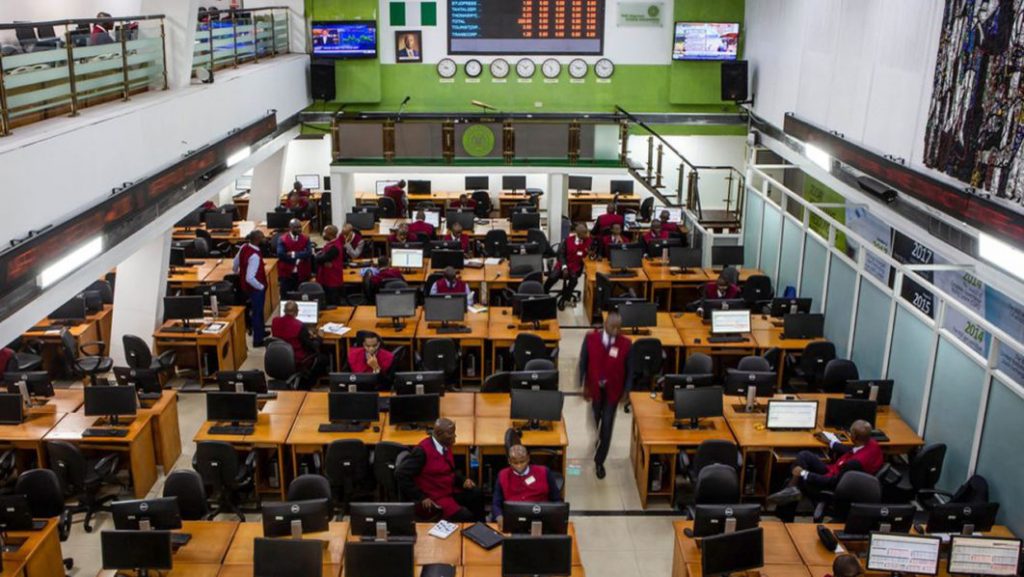- Safiu Kehinde
The Nigerian stock market closed on a bearish note on Tuesday as investors recorded a loss of N4.6 trillion due to sell-offs in heavyweight stocks.
Some of the stocks affected by the selloffs include: Academy Press, Custodian Investment, Dangote Cement, Deap Capital Management, Oando and 56 others.
The Nigerian Exchange Ltd. (NGX) market capitalisation, which opened at N94.526 trillion, dropped by N4.642 trillion, closing at N89.884 trillion.
Similarly, the All-Share Index (ASI) fell by 7,454.60 points, or 5.01 per cent, closing at 141,327.30 points from 148,781.90 recorded on Monday.
This made the year-to-date (YTD) return drop to 37.31 per cent.
Also, the market breadth closed negative with 61 losers and four gainers.
Dangote Cement and MTN led the decliners’ table by 10 per cent each, ending the session at N594 and N429.30 per share respectively.
BUA Cement, Transcorp Power and Oando dipped by 10 per cent each, closing at N162, N39.60 and N36 per share respectively.
Conversely, NCR Nigeria led the advancers’ table by 9.82 per cent, settling at N21.25, Berger Paints trailed by 2.56 per cent, finishing at N36 and FCMB Group grew by 0.96 per cent, closing at N10.50 per share.
Similarly, AXA Mansard rose by 0.25 per cent, ending the session at N12.10 per share.
Assessment of the market activity revealed 80 per cent growth in volume, 159 per cent increase in turnover and 9 per cent decline in deals.
A total of 655.9 million shares worth N29.4 billion were traded across 29,558 transactions, compared to 364.4 million shares valued at N11.4 billion that was exchanged in 32,564 deals earlier on Monday.
Meanwhile, First HoldCo closed with the highest volume, recording 68.27 million shares traded while GEREGU closed with the highest value, amounting to N4.42 billion.
In his reaction, the Vice Chairman of Highcap Securities Ltd., Mr David Adonri, attributed the downturn to weak third-quarter earnings, investor misinterpretation of foreign policy comments, and concerns over a proposed capital gains tax increase.
He noted that market began to show signs of fatigue last week, even before the statement by U.S. President Donald Trump regarding Nigeria’s economic reforms.
“The market had already started declining due to disappointing third-quarter results from some listed companies.
“Several banks could not sustain their previous dividend levels, while the consumer goods sector posted unimpressive results. These disclosures weakened market fundamentals,” he explained.
Adonri noted that the situation was worsened by an external shock arising from comments made by President Trump, which were meant to be supportive but were misinterpreted by some investors, leading to panic and eroding confidence.
He also identified the proposed 30 per cent capital gains tax, expected to take effect in January, as a major concern among institutional and foreign investors.
“Many high-net-worth and institutional investors, who are the main targets of this policy, see it as a jumbo tax penalty and have started exiting or holding back investments,” he said.
In spite the downturn, Adonri described the current market phase as a “buyers’ market,” offering attractive entry points for investors with liquidity.
“The sharp decline has created great opportunities. Any investor who has cash to deploy now will enjoy the market,” he said.


